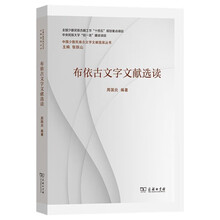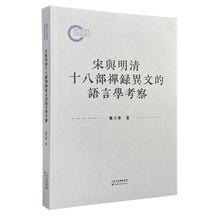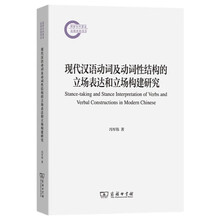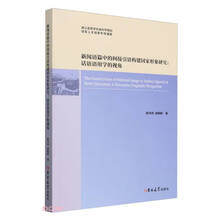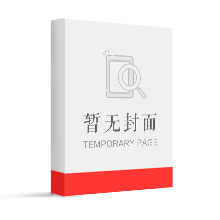Chapter 1 Introduction
1.1 The Motive
1.2 Taoci in Beijing Dialect
1.3 Taoci in the International Higher Education Market
1.3.1 Taoci Email
1.3.2 The Global Higher Education Market
1.3.3 Chinese Students in the Global Higher Education Market
1.3.4 Taoci as a Means to Hunt Global Education Offer
1.4 Summary
Chapter 2 Theoretical Framework and Relevant Work
2.1 Second Language Investment Theory
2.1.1 Bourdieu's Theory of Practice: Habitus, Field and Capital
2.1.2 Second Language Learning Investment
2.2 Speech Act Theory
2.2.1 Th Internalist Perspective: Intrinsic to Language Signs
2.2.2 The Externalist Perspective: Beyond Linguistic Signs
2.2.3 Performativity in Postmodern Sociology
2.3 L2 Learners' English Email Writing and Self-promotional Discourse
2.3.1 English Email from Student to Faculty
2.3.2 Self-promotional Genre in Application
2.4 Research Questions Based on the Present Work
Chapter 3 Research Methodology
3.1 Data Collection
3.1.1 Participants
3.1.2 Data CoUected
3.2 Data Analysis
3.2.1 Discourse Analysis Method of Taoci Email
3.2.2 Analysis Method of Interview Transcripts and Supplementary Data
3.3 Privacy Protection
Chapter 4 Investment Through Speech Acts: A Panorama
4.1 An Overview of Taoci as Macro Speech Act
4.2 Speech Act as Pulling Guanxi
4.2.1 Deference-oriented Strategy: Distancing
4.2.2 Solidarity-oriented Strategy: Bonding
4.2.3 Sectional Discussion: Investment with Social Capital
4.3 Speech Act as Promoting Self/2o
4.3.1 Me-oriented Strategy: Advertising Self
4.3.2 Us-oriented Strategy: Striking up Academic Bonding
4.3.3 Sectional Discussion: Investing with Academic Capital
4.4 Speech Act as Negotiating Entry
4.4.1 InquiringAvailabflity
4.4.2 Asking for Offer
4.4.3 Informing Application Status
4.4.4 Following up Application Status
4.4.5 Asking for "Illegitimate" Favor
4.4.6 Sectional Discussion: Investment for Imagined Identity
4.5 Discussion and Summary
Chapter 5 Writing to Act: An Individual Investment Trajectory
5.1 Case Data
5.2 Speech Act Varying Across Application Stages
5.2.1 The Door-knocking Phase: Overriding Self-promotion and Less Guanxi-pulling
5.2.2 The Upsetting Situation: More and Intensifying Guanxi-pulling
5.2.3 Deadline Approaching: More Accurate Self-promotion
5.2.4 Summary of Speech Act Variation Across Situations
5.3 Writing into an Imagined Future
5.3.1 Imagined IdentitY of "World Viewer" and "Successful Returnee
5.3.2 Accumulating Capital for Global Offer Hunting
5.3.3 The Dynamic Investment in Yunyang's Taoci
5.4 Summary
Chapter 6 The Dynamic Investment Model
6.1 General Discussion on Major Findings
6.2 The Dynamic Investment Model
6.2.1 Speech Act: Doing Investment with Words
6.2.2 Habitus: Perpetuating Yet Changing
6.2.3 Dynamism of Investment
Chapter 7 Conclusion
7.1 Implications
7.2 Limitations
7.3 Suggestions for Future Research
Appendixes
Appendix A English Translation of Participant Recruitment Email
Appendix B English Translation of the Interview Design
Appendix C Samples of Email Data in the Year of 2013, 2014 and 2015
References
展开


